Pas de biographie disponible.
Compositeur Musique additionelle Librettiste Parolier Metteur en scène Chorégraphe Producteur création Producteur version
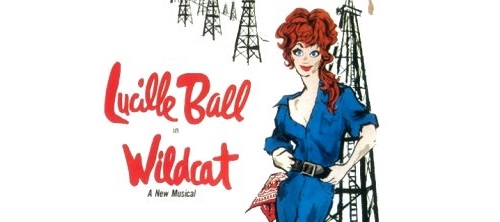
Musical
Musique: Cy Coleman • Paroles: Carolyn Leigh • Livret: Richard Nash • Production originale: 1 version mentionnée
Dispo: Résumé Génèse Liste chansons
Vidéos:
Genèse: Nash had envisioned the main character of Wildy as a woman in her late twenties, and was forced to rewrite the role when Lucille Ball expressed interest not only in playing it but financing the project as well. Desilu, the company owned by her and soon-to-be ex-husband Desi Arnaz, ultimately invested $360,000 in the show in exchange for 36% of the net profits, the rights to the original cast recording (ultimately released by RCA Victor), and television rights for musical numbers to be included in a special entitled Lucy Goes to Broadway, a project that eventually was abandoned. Ball also was permitted to choose her leading man. Kirk Douglas's salary demands and heavy film schedule eliminated him from the running, and Gordon Macrae, Jock Mahoney, and Gene Barry were considered before she selected Keith Andes. The Philadelphia tryout opened on October 29, 1960 to a glowing review from Variety, although local critics were less enthusiastic. The scheduled Broadway opening had to be postponed when trucks hauling the sets and costumes to New York City were stranded on the New Jersey Turnpike for several days by a major blizzard. After two previews, the show, directed and choreographed by Michael Kidd, opened on December 16 at the Alvin Theatre. The cast also included Paula Stewart and Swen Swenson, with Valerie Harper among the chorus members. Vivian Vance, Ball's costar from I Love Lucy, was in the opening night audience and was photographed giving the star a congratulatory hug backstage after the show. Hampered by lukewarm reviews and Ball's lingering illness, it ran for only 171 performances. Ball quickly realized audiences had come expecting to see her Lucy Ricardo persona and began mugging and ad-libbing to bring her characterization closer to that of the zany housewife she had portrayed in I Love Lucy. It was clearly Ball who was drawing the crowds, and when she fell ill and demands for refunds ran high, the producers announced plans to close the show for a week in late March 1961 to allow her to recover her strength. The closure came sooner than planned when Ball, suffering from a virus and chronic fatigue, departed for Florida on February 8. She returned two weeks later, but on April 22 she collapsed on stage. It was decided the show would close for nine weeks at the end of May and reopen once its star had recovered fully,[4] but May 24 proved to be her final performance, as the musicians' union insisted on members of the orchestra being paid during the shutdowns. This ultimately made it financially infeasible for the production to remain active, forcing it to close permanently on June 3, 1961. Wildcat was Ball's only appearance in a Broadway production. She had been previously cast in the Bartlett Cormack play Hey Diddle Diddle, a comedy that premiered in Princeton, New Jersey on January 21, 1937. Ball played the part of Julie Tucker, "one of three roommates coping with neurotic directors, confused executives, and grasping stars who interfere with the girls' ability to get ahead." The play received good reviews, but there were problems, chiefly with its star, Conway Tearle, who was in poor health. The play was scheduled to open on Broadway at the Vanderbilt Theatre, but closed after one week in Washington, D.C. when Tearle suddenly became gravely ill.
Résumé: Wildcat "Wildy" Jackson arrives in 1912 in Centavo City with dreams of striking oil but with neither capital nor know-how to help her accomplish her goal. Joe Dynamite, the most successful crew foreman in the territory, finds her ruggedness appealing and agrees to work with her if she can prove ownership to her claimed land and hire a crew. She finds 10 acres (40,000 m2) owned by a hermit prospector, but Joe is certain the property is dry. Wildy attempts to lure him with her female charms, but when he still rejects her plans she has him falsely arrested, then released into her custody. A grateful Joe agrees to start work on the project but abandons it once he discovers it was Wildy who had him jailed. Left high and literally dry by her partner and crew, Wildy resorts to desperate measures to strike a Texas-sized gusher.
Création: 16/12/1960 - Neil Simon Theatre (Broadway) - 172 représ.
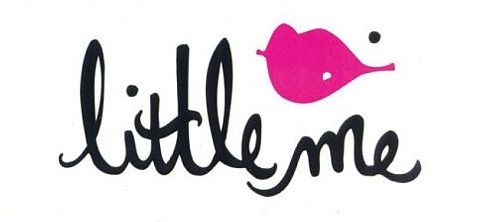
Musical
Musique: Cy Coleman • Paroles: Carolyn Leigh • Livret: Neil Simon • Production originale: 1 version mentionnée
Dispo: Synopsis Génèse Isnpiration Liste chansons
Genèse: Little Me opened on Broadway at the Lunt-Fontanne Theatre on November 17, 1962 and closed on June 27, 1963, running for 257 performances. Directed by Cy Feuer and Bob Fosse with choreography by Fosse, Sid Caesar starred playing multiple roles, with Virginia Martin as Young Belle and Nancy Andrews as Old Belle. The London production opened at the Cambridge Theatre on November 18, 1964 and ran for 334 performances. Bruce Forsyth and Eileen Gourlay starred. The 1982 revival at the Eugene O'Neill Theatre opened on January 21, 1982 and closed on February 21, 1982 after 30 previews and 36 performances. The multiple Caesar roles were split between Victor Garber and James Coco. The director was Robert Drivas and choreographer was Peter Gennaro, with Mary Gordon Murray as Belle; Bebe Neuwirth was in the ensemble. Little Me was revived on the West End at the Prince of Wales Theatre, opening on May 30, 1984 and running for 334 performances. Russ Abbot and Sheila White starred. Little Me was revived on Broadway by the Roundabout Theatre Company at the Criterion Center Stage Right as a vehicle for Martin Short, opening on November 12, 1998 and closing on February 7, 1999 after 99 performances and 43 previews. With direction and choreography by Rob Marshall, Faith Prince played the combined roles of Old and Young Belle. According to Rob Marshall: "Without Marty, we wouldn't do it. And we're fortunate that we still have Neil and Cy with us, and they'll be working with us and tailoring it for Marty." The next professional revival of Little Me is scheduled to take place at the Rose and Crown Theatre, London from the 13th - 31st August 2013. Directed by Brendan Matthew, with choreography by Chris Whittaker and designed by Stuart Charlesworth
Résumé:
Création: 17/11/1962 - Lunt-Fontanne Theatre (Broadway) - 257 représ.
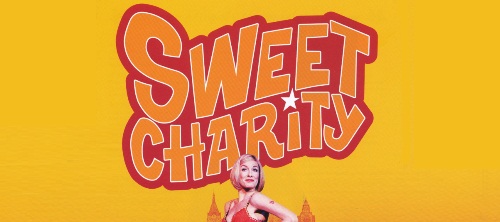
Musical
Musique: Cy Coleman • Paroles: Dorothy Fields • Livret: Neil Simon • Production originale: 9 versions mentionnées
Dispo: Résumé Synopsis Génèse Liste chansons
Genèse: Original productions After a tryout at Detroit's Fisher Theatre, the musical premiered on Broadway at the Palace Theatre on January 29, 1966 and closed on July 15, 1967 after 608 performances and 10 previews. It was conceived, directed and choreographed by Bob Fosse and starred Gwen Verdon, John McMartin, Helen Gallagher, Thelma Oliver, James Luisi, Arnold Soboloff, and Sharon Ritchie. Scenic and lighting design were by Robert Randolph and costume design was by Irene Sharaff. The production was nominated for 12 Tony Awards, winning for Fosse's choreography. The musical opened in the West End at the Prince of Wales Theatre in October 1967, running for 476 performances. Juliet Prowse starred, and was succeeded by Gretchen Wyler. 1986 Broadway revival A revival opened on Broadway at the Minskoff Theatre on April 27, 1986 and closed on March 15, 1987, running for 369 performances and 15 previews. Again directed and choreographed by Fosse, Debbie Allen starred as Charity with Bebe Neuwirth as Nickie and Michael Rupert as Oscar. Fosse's wife Gwen Verdon (the original Charity from 1966), remounted the choreography with Fosse, and taught much of the ensemble numbers to the female chorus. The production won four Tony Awards including the Tony Award, Best Reproduction (Play or Musical). When Allen left the show Ann Reinking took over as Charity. 1998 Benefit concert On June 15, 1998, Broadway Cares/Equity Fights AIDS presented an all-star fully staged one-night-only concert at Avery Fisher Hall in Lincoln Center. It starred Chita Rivera, Bebe Neuwirth, Donna McKechnie, Debbie Allen and in her last public stage appearance, Gwen Verdon, all in the shared role of Charity. 1998 London revival A West End revival opened on 19 May 1998 and closed on 15 August 1998 at the Victoria Palace Theatre, choreographed by Stephen Mear and starring Bonnie Langford. 2005 Broadway revival Christina Applegate starred in another revival of the show, opening on Broadway at the Al Hirschfeld Theatre on May 4, 2005, after a troubled three-city preview tour. The show went into production beginning January 25, 2005 at the Historic Orpheum Theatre in Minneapolis. Audience-attended previews began February 8, with the Opening Night performance held February 17, 2005. The Minneapolis engagement closed on February 20. Applegate broke her foot in Chicago, the second stop on the tour, and was replaced by her understudy, Charlotte d'Amboise. Then, after the final leg of the tour in Boston, the producers announced that the production would not be continuing to Broadway due to lack of interest. However, two days later, the Broadway engagement was on after Applegate convinced the producers to continue. A week into previews, Applegate rejoined the cast, which also included Denis O'Hare and Ernie Sabella. The show was nominated for three Tony Awards including Best Revival of a Musical and Best Actress in a Musical for Applegate. Reportedly, pop icon Britney Spears was asked to replace Applegate when her contract expired, but declined the offer. The musical ended its Broadway run on December 31, 2005, after 279 performances. A national tour of the 2005 Broadway revival began in September 2006 and ended in August 2007. It starred Molly Ringwald and later Paige Davis as Charity. 2009 London revival A revival of the show opened for a limited engagement at London's Menier Chocolate Factory on 21 November 2009 and closed on 7 March 2010. It starred Tamzin Outhwaite as Charity. Outhwaite is reprising the title role in the West End transfer of the successful Chocolate Factory production of the show. Playing at the Theatre Royal, Haymarket the show opened officially on 4 May 2010 after previews began on 23 April. This was the first major production to have the same actor (Mark Umbers) play all three of Charity's love interests: Charlie, Vittorio and Oscar. Similarly, Josefina Gabrielle plays both Nickie and Ursula while Tiffany Graves plays Helene. The production closed at the Theatre Royal Haymarket on 6 November 2010 but will transfer to run until 8 January 2011. The 2011 Olivier Award nominations were announced on Monday 7 January 2011, and this production received three nominations: Best Revival of a Musical, Best Theatre Choreography for Stephen Mear and Best Supporting Actress in a Musical for Josefina Gabrielle.
Résumé: Charity Valentine is the eternal optimist. While working at the seedy Fan-Dango ballroom, she is often taken advantage of and continually experiences bad relationships. Finally, she seems to have met a decent fellow in Oscar. Trying to hide her true profession, she lies to him and tells her that she works in a bank. Soon, Oscar asks Charity to marry him. Unfortunately, Oscar discovers Charity's real profession and backs out of the marriage. Nevertheless, Charity continues to remain hopeful that good things will happen in her life.
Création: 29/1/1966 - Palace Theatre (Broadway) - représ.

Musical
Musique: Cy Coleman • Paroles: Adolph Green • Betty Comden • Livret: Adolph Green • Betty Comden • Production originale: 4 versions mentionnées
Dispo: Résumé Synopsis Génèse Isnpiration Liste chansons
Genèse: Comden and Green based the musical on three works: the 1934 Howard Hawks film Twentieth Century; the original 1932 play of the same name by Ben Hecht and Charles MacArthur; and Hecht's and MacArthur's inspiration, Charles Bruce Millholland's unproduced play about his experiences working for theater producer David Belasco, Napoleon of Broadway. Cy Coleman, when asked to compose the score, initially refused. "I didn't want to do twenties pastiche – there was too much of that around," he recalled. "But when I realized the main characters had these larger-than-life personalities, I thought – ah, comic opera! Even the tikka-tikka-tikka patter of a locomotive train has the rhythm of comic opera." Coleman agreed to write the music for the show and produced an operetta-style score reminiscent of the works of Sigmund Romberg and Rudolf Friml. Coleman's music often evokes the movement of a train in its orchestration and rhythms. At times it echoes the chase music that used to accompany Mack Sennett's silent comedies, and traces of operatic Kurt Weill and romantic Jacques Brel can be heard as well. Following a Boston tryout at the Colonial Theatre, the Broadway production, directed by Hal Prince and choreographed by Larry Fuller, opened on February 19, 1978 at the St. James Theatre to mixed reviews. It ran for 11 previews and 449 performances. The opening night cast included John Cullum, Madeline Kahn, Imogene Coca, and Kevin Kline. After only nine weeks, Kahn departed the show. The New York Times reported, on April 25, 1978, that Kahn had left the show the day before, and "she said she was withdrawing because of damage to her vocal cords." She was replaced by understudy Judy Kaye, who had been playing a small supporting role, and the critics were invited to return. According to the New York Times, "Judy Kaye replaced Madeline Kahn...and bang, boom, overnight she is a star." They praised her performance, and Kaye's theatrical career took off. She later starred in the US tour opposite Rock Hudson. A London production, produced by Harold Fielding, and starring Keith Michell as Oscar Jaffe, Julia McKenzie as Lily Garland, Mark Wynter as Bruce Granit and Ann Beach as Mrs. Primrose, opened on March 19, 1980, at Her Majesty's Theatre, The Haymarket and ran for 165 performances. Dora Bryan had originally been cast as Mrs. Primrose, but was replaced by Beach a week before previews due to a difference of opinion with the American producers about her performance. The show has never been revived on Broadway; however, as part of an Actors Fund benefit, a one-night-only staged concert was held on September 26, 2005 at the New Amsterdam Theatre. The production starred Marin Mazzie as Lily, Douglas Sills as Oscar, Joanne Worley as Letitia Primrose and Christopher Sieber as Bruce, as well as appearances by Jesse Tyler Ferguson as Max Jacobs, Cheyenne Jackson as one of the "Life is Like a Train" porters, and Kathleen Turner as Imelda. The first inner London revival was staged at the Union Theatre, Southwark, running December 14, 2010 to January 15, 2011. Howard Samuels plays Oscar Jaffee and Rebecca Vere is Lily Garland. Directed by Ryan McBryde, with choreography by Drew McOnie and design by Diego Pitarch.
Résumé: After four flops in a row, megalomaniac theatre impresario, Oscar Jaffee, and his hapless entourage are on the run. Desperately trying to resuscitate his flat-lining career he books a carriage on the Twentieth Century Limited, the world’s most famous express train, bound for New York. In the next carriage resides his former sweetheart turned Hollywood starlet Lily Garland. Now Oscar has just 16 hours to entice the egotistical Lily back on to the stage, as the leading lady in his next show. Oscar’s financial ruin hangs in the balance and a jealous lover is on the loose. Offered funding by religious fanatic Letitia Peabody Primrose, Jaffee’s dreams fall into a glorious, and by turns hilarious, balancing act of keeping everyone happy. Set against a backdrop of the great American Depression of the 1930s, what unfolds is a tongue-in-cheek fairy tale of the pitfalls of producing theatre when cash is tight and private money comes at an unavoidable cost.
Création: 19/2/1978 - St. James Theatre (Broadway) - 449 représ.
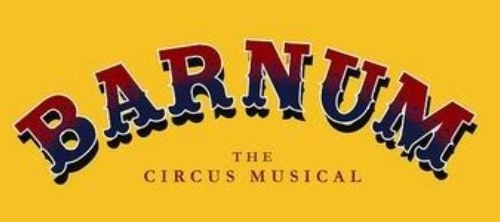
Musical
Musique: Cy Coleman • Paroles: Michael Stewart • Livret: Mark Bramble • Production originale: 9 versions mentionnées
1
Dispo: Résumé Synopsis Génèse Liste chansons
Genèse: Original Broadway Production) The original production opened at the St. James Theatre on Broadway, on April 30, 1980 and closed on May 16, 1982 after 854 performances and 26 previews. It was directed and choreographed by Joe Layton, with scenic design by David Mitchell, costume design by Theoni V. Aldredge, and lighting design by Craig Miller. The musical starred Jim Dale as P.T. Barnum, Glenn Close as Charity Barnum, Marianne Tatum as Jenny Lind, Terri White as Joice Heth, and Terrence Mann as Chester Lyman. Original London Production The show made its West End debut on June 11, 1981 at the London Palladium, where it ran for 655 performances. The London cast included Michael Crawford as P.T. Barnum, Deborah Grant as Charity Barnum and Sarah Payne as Jenny Lind. Crawford reprised his role opposite Eileen Battye in a UK Tour of the show which ran between 1984 and 1986, stopping off at various venues including the Manchester Opera House and Victoria Palace Theatre. The tour was recorded for television and broadcast by the BBC in 1986. It was later released on VHS and DVD. Other productions International productions were staged in Australia (1982) starring Reg Livermore, Madrid (1984) starring Emilio Aragón, Florida (2008) starring Brad Oscar. In 2008, Cameron Mackintosh had reportedly voiced interest in producing a London or Broadway revival of Barnum starring either John Barrowman or Neil Patrick Harris.
Résumé: Barnum raconte l'histoire du Prince of Humbug, Phineas Taylor Barnum. Malgré les objections de sa femme, Charity, Barnum essaie de créer un spectacle dans lequel les attractions principales sont monstres de société. On y retrouve la plus vieille femme en vie, Joice Heth, le plus petit homme du monde, Tom Thumb, et encore mieux, un chanteur d'opéra suédois glamour, Jenny Lind. Finalement, Barnum consent à abandonner le spectacle et commencer une vie normale pour apaiser Charity. A la fin, après que la mort de Charity, Barnum revient dans le monde du cirque, très à la mode, en formant une association avec James A. Baily. Alors, les deux hommes créent 'The Greatest Show on Earth'.
Création: 30/4/1980 - St. James Theatre (Broadway) - représ.
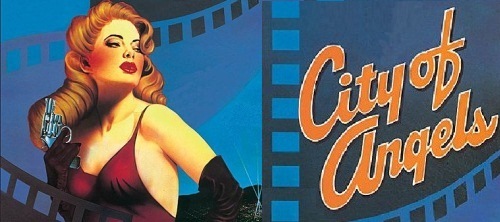
Musical
Musique: Cy Coleman • Paroles: David Zippel • Livret: Larry Gelbart • Production originale: 6 versions mentionnées
Dispo: Résumé Synopsis Génèse Liste chansons
Genèse: City of Angels opened on Broadway at the Virginia Theatre on December 11, 1989 and closed on January 19, 1992 after 878 performances and 24 previews. It was directed by Michael Blakemore with sets designed by Robin Wagner and costumes by Florence Klotz. While the show continued on Broadway, the Los Angeles company opened in June, 1991 at the Shubert Theater in Century City, running 6 months, with Stephen Bogardus as Stine, Lauren Mitchell as the villainess, and Randy Graff and James Naughton recreating their original roles. The production was revamped and embarked on a national tour, during which Barry Williams, of The Brady Bunch fame, took over the role of Stone. Jordan Leeds was chosen from the tour's ensemble to play Stine. The tour played venues from the Tampa Bay Performing Arts Center, Tampa, Florida in February 1992 to the National Theatre, Washington, DC in June 1992 to the Crouse-Hinds Concert Theatre, Syracuse, New York, in November 1992. The national tour closed in November 1992, in Philadelphia, Pennsylvania. The musical opened in London's West End at the Prince of Wales Theatre in March 1993 and ran until November 13, 1993. Blakemore again directed with Roger Allam as Stone and Martin Smith as Stine, with Henry Goodman as Buddy Fidler. The theatre company Reprise! Broadway's Best production ran in January-February 2006 at Freud Playhouse, UCLA, Los Angeles. The cast featured Burke Moses (Stone), Vicki Lewis (Oolie), Tami Tappan Damiano (Gabby), and Stephen Bogardus (Stine).
Résumé: Alternating between real life and "reel" life, this musical tells the tale of Stine, a young novelist, attempting a screenplay for movie producer/director, Buddy Fidler.
Création: 11/12/1989 - August Wilson Theatre (Broadway) - représ.

.png)
.png)




